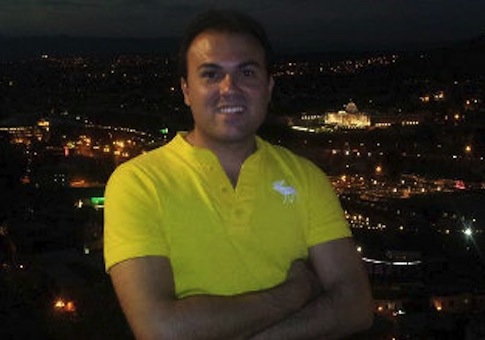An U.S. pastor imprisoned in Iran for preaching Christianity has been moved to a facility housing Iran’s most violent criminals, sparking fresh concerns about his safety and calls for President Barack Obama to apply more diplomatic pressure on the Iranian regime.
American Pastor Saeed Abedini has been transferred from the Evin prison in Tehran to the Rajai Shahr Prison, about an hour-and-a-half away in Karaj, according to the American Center for Law and Justice (ACLJ). The Rajai Shahr Prison holds many of Iran’s most violent offenders, including convicted murderers and rapists.
Jordan Sekulow, executive director of ACLJ, said in an interview that it is common for prisoners in the death row ward where Abedini has been placed to kill each other. The Iranian regime has sent those it views as troublemakers there in the past to "have them executed without having to kill them on [their] own," he said.
Sekulow noted that Abedini’s transfer comes as the United States and other world powers are set to discuss Iran’s nuclear program in Geneva on Thursday and Friday.
"By making this move it would appear that there are elements in Iran that are trying to undermine the negotiations," he said. "We don’t know if we have until Thursday at this point—it’s that bad of a situation."
The ongoing nuclear negotiations between Iran and the West have opened a rift between new President Hassan Rouhani and the Iranian Revolutionary Guard Corps (IRGC). While Rouhani has engaged in what some observers describe as a charm offensive to reach a deal with the West and alleviate crushing economic sanctions, elements of the IRGC fear that Rouhani could threaten the existence of the Islamic regime if he gives up too much.
Iran has said it wants to enrich uranium for nuclear energy, but Western intelligence agencies and independent experts say it has the capability and intent to produce atomic bombs in a matter of months, if not weeks.
Sekulow said Abedini appears to have been caught in the middle of the "internal battle" within the Iranian regime over negotiating tactics. The IRGC helped organize one of the largest anti-American rallies in years on Monday in Tehran, where tens of thousands of protesters chanted "death to America" to commemorate the 1979 takeover of the U.S. Embassy following the Islamic Revolution.
"It’s not necessarily President Rouhani and his team that has ordered this and decided to put this man’s life at risk," Sekulow said, instead pointing to "those inside the Iranian government system like the Guard who are trying to undermine any new relations with Iran at the negotiating table."
Sekulow said Abedini initially left Iran in the early 2000s to escape the regime’s persecution of Christians and become a U.S. citizen. He was told by Iranian officials that he would be not arrested if he returned for humanitarian work and did not participate in services at Christian house churches.
However, Abedini was detained during his most recent visit and charged with "undermining the national security of the Islamic Republic of Iran" even though he was working with orphanages and other humanitarian initiatives, Sekulow said. The charges dated back to Abedini’s faith-based efforts between 2001 and 2005, activities he had already admitted to and ceased.
The ACLJ is calling on Obama and the State Department to press for Abedini’s release. Obama most recently urged Iran to release Abedini on a September phone call with Rouhani.
"The president speaking can take awhile, but this time—because he spoke recently on the phone [with Rouhani]—he does have a duty," Sekulow said. "The situation of this American citizen is dire and it’s not something we would necessarily have time to negotiate over anymore."
Bernadette Meehan, spokeswoman for the president’s National Security Council, repeated U.S. calls for Iran to free Abedini in an email statement to the Washington Free Beacon.
"We are aware of and are concerned about reports that U.S.-Iranian citizen Saeed Abedini, who was sentenced to eight years in prison in Iran on charges related to his religious beliefs, was transferred from Evin prison to Rajai Shahr prison," the statement said.
"We call again on Iranian authorities to permit a visit by officials of the Swiss Embassy in Tehran to determine the well-being of Mr. Abedini and of detained U.S.-Iranian citizen Amir Hekmati, who was sentenced on false espionage charges. We repeat our call on Iran to immediately release Mr. Abedini and Mr. Hekmati."
A bipartisan group of senators recently introduced a resolution urging Iran to release Abedini and all other prisoners detained for their religious beliefs. ACLJ has also started an online petition calling for Obama and the State Department to "immediately take decisive diplomatic action to save Pastor Saeed and bring him home, before it’s too late." The petition currently has nearly 11,000 signatures.
Human rights groups have expressed growing alarm about abuses in Iran toward political and religious prisoners despite the recent releases of some detainees. More than 500 people have been executed in Iran this year, according to Amnesty International.
